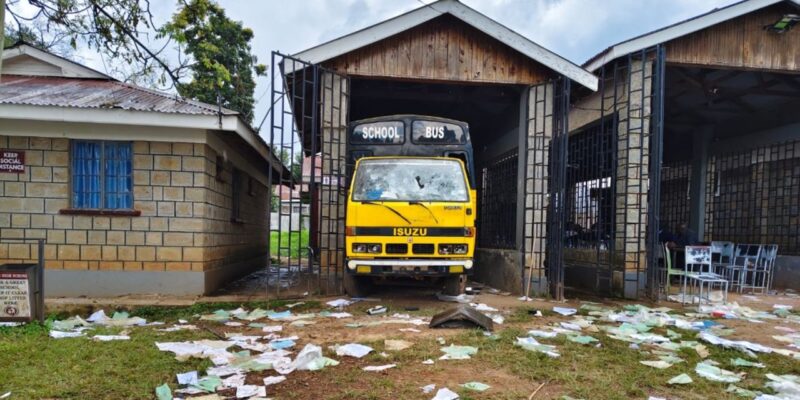The shocking violence that has swept through schools in Bomet and Kericho counties has exposed deeper issues than mere indiscipline. Investigators suggest that exam malpractice cartels may have played a role in fueling the unrest, particularly at Litein Boys’ High School, where arson and looting caused unprecedented destruction.
According to a Directorate of Criminal Investigations (DCI) officer, students may have revolted after administrators refused to collaborate with syndicates linked to leaking national examination papers. The riots saw classrooms, dormitories, and offices set ablaze, while students looted maize, beans, rice, and electronics.
The destruction has left vital school documents—including KCSE certificates, receipt books, and exam papers—scattered or burnt. Shockingly, students filmed themselves cooking ugali and chapati in the school kitchen while vandalizing property. They even commandeered the school bus to block exits before being dispersed.
Eight students have already been arraigned in court on charges of arson, burglary, and malicious destruction of property. Their arrests highlight growing concerns about criminal influences exploiting unrest for personal gain.
The Kenya Union of Post Primary Education Teachers (KUPPET) has condemned the violence, with branch secretary Mary Rotich urging parents to take greater responsibility for instilling discipline. She called for a multi-sectoral investigation to uncover the true causes of the riots.
Parents, however, argue that the government bears part of the blame for ignoring intelligence reports about impending strikes. “The police were informed but stood idle until chaos erupted,” said one parent, Kennedy Cheriro.
As exam season approaches, fears are mounting that exam-related corruption is spilling over into school discipline, jeopardizing both infrastructure and academic integrity. Without decisive intervention, stakeholders warn, the problem could spiral into a full-blown crisis.





